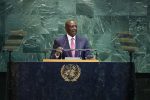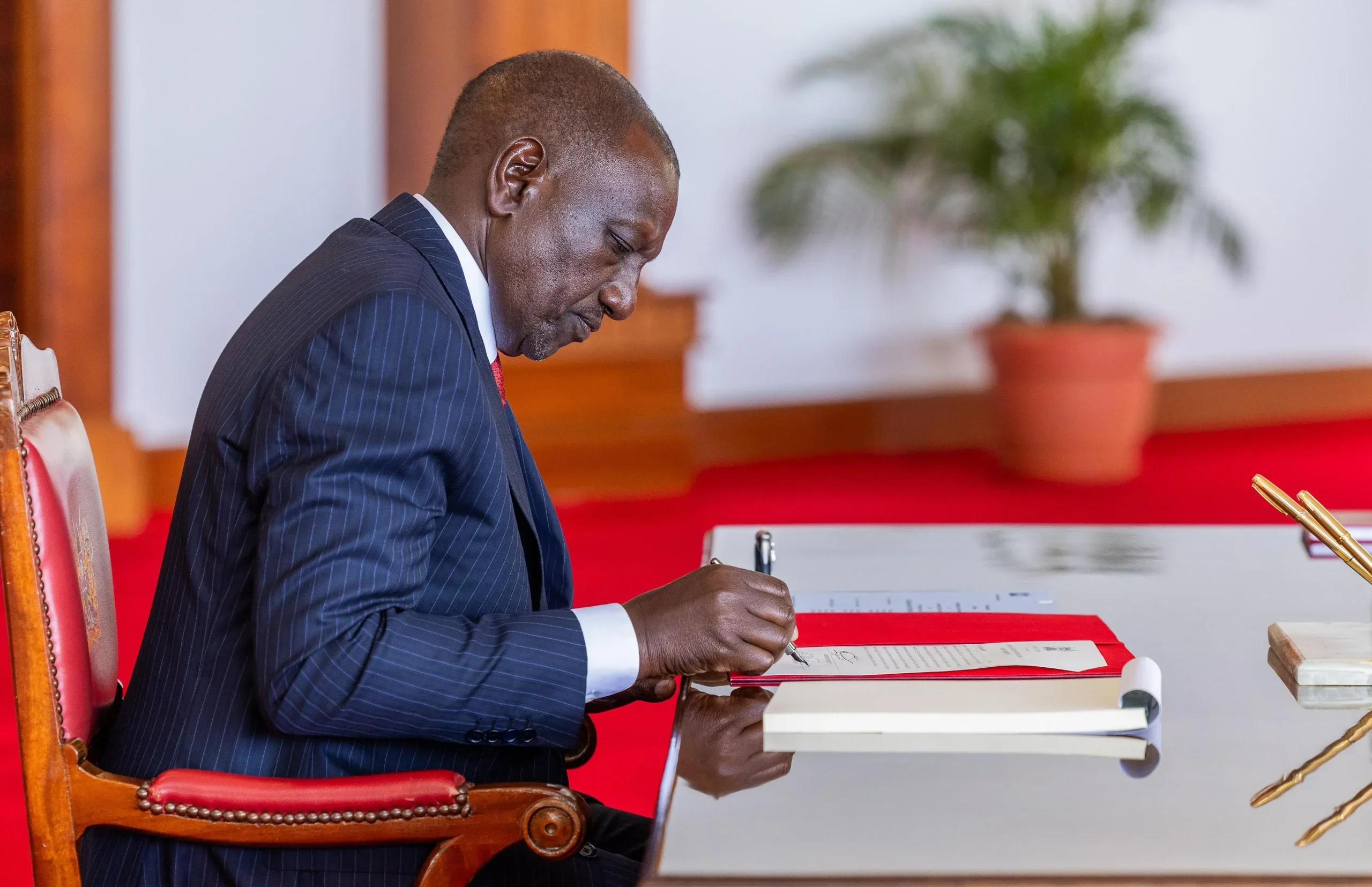President William Ruto has referred the Conflict of Interest Bill 2025 back to Parliament for reconsideration while simultaneously assenting to the Excise Duty (Amendment) Bill 2025, a measure aimed at reducing electricity costs for Kenyans.
The dual actions, announced on Thursday at State House, Nairobi, reflect Ruto’s broader agenda of fostering accountability in governance and alleviating economic burdens on citizens.
President Ruto’s decision to refer the Conflict of Interest Bill 2025 back to Parliament signals his dissatisfaction with the current draft, despite its focus on addressing conflicts of interest in public service.
The President, who has been vocal on calls to root out corruption, has consistently urged Parliament to pass robust legislation to enhance accountability and integrity among public officials.
However, he emphasised that the Bill, in its present form, falls short of the high standards required to effectively combat corruption and uphold constitutional values.
In a memorandum submitted to Parliament, as mandated by Article 115 of the Constitution, Ruto outlined the need for stronger provisions on transparency and enforcement.
The Bill, while addressing the core issue of conflicts of interest, requires further refinement to align with Kenya’s constitutional principles of good governance and integrity.
Analysts view this move as a strategic effort to pressure lawmakers into crafting a more rigorous framework that can withstand scrutiny and deliver tangible results in the fight against corruption.
The coming weeks will be critical as Parliament reconsiders the Bill, with observers keenly watching how lawmakers respond to Ruto’s call for a higher standard of accountability.
Transformer Tax Cut: Easing the Burden on Consumers
President Ruto’s assent to the Excise Duty (Amendment) Bill 2025 has been widely welcomed as a pragmatic step toward reducing the cost of electricity for Kenyan households and businesses.
The new law amends the Excise Duty Act, CAP 472, by eliminating the 25 per cent duty on imported fully assembled electric transformers and their components. This measure is expected to have a ripple effect on the energy sector, lowering electricity connection costs and reducing tariffs.
Transformers are a critical component of electricity infrastructure, required for every new connection and as replacements in the national grid.
By removing the import duty, the government aims to make transformers more affordable, enabling the Kenya Power and Lighting Company (KPLC) to procure adequate units within its existing budget. This, in turn, is anticipated to enhance the reliability of the power supply, minimize outages, and support economic productivity.
The tax cut is particularly significant for rural and underserved areas, where electricity access remains a challenge. Lower connection costs could accelerate efforts to expand the grid, bringing more households and businesses online.
Additionally, the reduction in transformer replacement costs is expected to contribute to lower electricity tariffs, offering relief to consumers grappling with the high cost of living.
President Ruto’s actions on Thursday highlight the delicate balance between advancing governance reforms and addressing immediate economic challenges.
The decision not to assent to the Conflict of Interest Bill underscores his long-term vision for a corruption-free public service, while the transformer tax cut reflects a pragmatic response to the pressing needs of Kenyans.
Together, these decisions position Ruto as a leader navigating complex political and economic terrain, seeking to deliver on promises of accountability and affordability.
The referral of the Conflict of Interest Bill back to Parliament sets the stage for a potentially transformative piece of legislation, provided lawmakers rise to the occasion.
Meanwhile, the transformer tax cut offers a lifeline to consumers and businesses, reinforcing the government’s commitment to economic resilience.
For now, Kenyans await the outcomes of these policy decisions, with hopes that they will translate into meaningful progress. As the nation watches, President Ruto’s leadership will be judged not only by his vision but by the tangible impact of his actions on governance and the lives of ordinary citizens.












